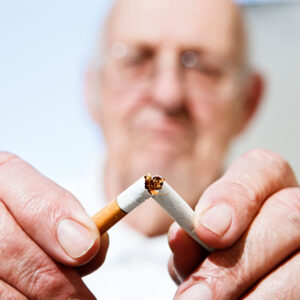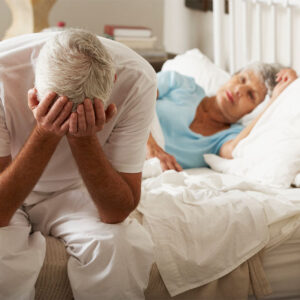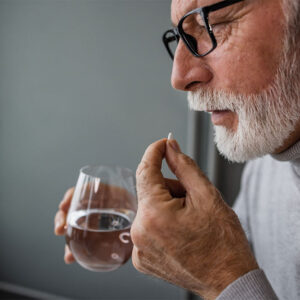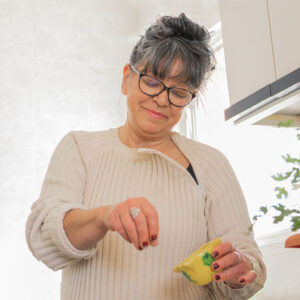
This Nighttime Habit Increases Heart Disease Risk
It produces higher heart rates and insulin resistance
Mainstream medicine wants you to believe that the best things you can do for heart disease and type 2 diabetes are to take prescription drugs and manage your diet.
Not by a long shot.
Despite record numbers of prescription drugs and fad diets, these conditions remain some of the top killers in the world.
Clearly, there’s more to beating these diseases than diet and drugs alone.
Case in point: A new study highlighted a key lifestyle factor completely overlooked by most doctors that could be sending your risk of heart disease and diabetes skyrocketing.
I talk a lot about your circadian rhythm because it has such a dramatic impact on so many aspects of your health.
I wish more doctors informed their patients about it (but hey, that’s what I’m here for).
And today, I’m going to share with you yet another way that having a disrupted circadian rhythm disrupts your health.
Researchers found that exposure to artificial light at night can cause changes in the body that can increase the risk of heart disease and type 2 diabetes.
They divided 20 people into two groups and studied them for two nights. One group slept in dim light, while the other spent one night in dim light and the second night in a room with the lights on (at 100 lux).
In the morning, the group that slept with the light on had higher levels of insulin resistance, higher heart rate, and lower heart-rate variability. (This is the measure of variation between each heartbeat. Less variability is better.)
These types of changes are significant because they can directly increase the risk of disease.
And they happened after just one night!
Imagine the damage caused by years spent sleeping with the TV or bedside lamp on.
This was a small study, but it builds on previous research showing that sleeping with the lights on is associated with an increased risk of obesity and type 2 diabetes.
One study in particular found that exposure to bright light during the day and dim light at night helps control blood sugar levels.
Previous studies have also shown that exposure to light at night can increase the release of stress hormones and reduce deep sleep… two factors that can increase insulin resistance.
The reason why the timing of your light exposure can affect disease risk is because of your circadian rhythm.
Light is the signal that governs your body’s internal clock, which is important for everything from metabolism to hormone release to temperature control.
In this case, the researchers found that light increases activation of the autonomic nervous system, which has the potential to increase heart rate and decrease insulin sensitivity.
The bottom line is that for optimal circadian rhythm, you need plenty of sunlight during the day… and plenty of darkness at night while you’re sleeping.
Written By Dr. Richard Gerhauser, M.D.
For years he’s been the trusted doctor for celebrities, world-class athletes, and countless seniors looking to reclaim their health.
And now…for the first time ever… he’s making his medical breakthroughs available to readers all across America.
Dr. Richard Gerhauser, M.D. is one of the most pioneering and innovative minds in medicine today – and he delivers cutting-edge cures each month through his Natural Health Response newsletter.
Natural Health Response readers get full access to Dr. Gerhauser’s protocols for chronic pain… heart disease… diabetes… Alzheimer’s… and even cancer. These are the very same treatments Dr. Gerhauser recommends to his own patients at his practice in Tucson, Arizona.
In addition to being a board-certified medical doctor, Dr. Gerhauser has earned two master’s degrees and has served as a clinical professor at the University of Arizona.
And as a physician at the world-famous Canyon Ranch, Dr. Gerhauser treated celebrities from around the world who paid dearly for the type of next-generation health information he provides Natural Health Response readers each month.
View More Free Articles
The INCREDIBLE Payoff for Delaying Diabetes
If you don’t know where your blood sugar levels stand, it’s time to get them checked. It’s estimated that one in three adults has prediabetes, yet 80 percent of these folks have NO IDEA they’re in this category. That’s a BIG problem because most people will develop type 2 diabetes within just five years of […]
The Biggest Dementia Risk Factor REVEALED
I’m sure you’re familiar with the Skeleton Dance song… “The foot bone is connected to the leg bone. The leg bone is connected to the knee bone…” It’s easy to think of our bones being linked because we can physically see them. What’s less obvious is that everything else about your health is JUST as […]
It's NEVER Too Late to Kick This Dangerous Habit
You’ve heard it a million times before: “Smoking is bad for you.” If you’re still lighting up, I bet you remember a time when smoking wasn’t just accepted—it was downright fashionable. Remember when you could smoke in restaurants, on airplanes, and even in hospitals? Heck, movie stars even made it look cool and sophisticated. Well, […]
The TRUTH About ED No One's Talking About
It’s a subject most men would rather sweep under the rug… erectile dysfunction (ED). But you’re not alone if you’re having trouble in the bedroom. In fact, ED affects up to 30 million men in the U.S. alone. However, popping a little blue pill isn’t the answer. ED drugs are often just slapping a Band-Aid […]
Don’t Let Muscle Loss RUIN Your Golden Years
For older women, muscle mass can take a nosedive after menopause. This means more than trouble carrying in the groceries. Over time, the decline in muscle mass can lead to mobility problems, balance problems, falls, and ultimately a loss of independence. Staying active is a critical piece of the puzzle. But now, researchers have discovered […]
The Bad Habit Causing Lupus
All autoimmune diseases are on the rise—but lupus is one of the worst. When the condition strikes, your immune system starts to attack healthy tissues. Lupus cases have increased by 60 percent in women and have increased six-fold in men over the past four decades. What’s driving this dramatic increase? Well, we might have found […]
SHOCKING Missing Piece of the Diabetes Puzzle Discovered
I’ve been saying for years that there’s MORE to type 2 diabetes than your weight—or even your diet. Sure, they play their part. But unless you’re adding in THIS missing piece of the puzzle, you could be increasing your risk of type 2 diabetes despite your best efforts to avoid it. And you’ll never guess […]
Ditch the Chips and DEFY Aging
Sometimes, you just want something to crunch on. The craving can send even the most health-conscious among us heading straight to the snack aisle. But before you reach for the potato chips—which can contain all kinds of harmful ingredients—I have a better idea. Try THIS crunchy, healthy snack instead of loading up ingredients that can […]
Is Aspirin DEADLY? (Get the Truth Here)
Old habits die hard… especially when we’ve been led to believe they’re good ones. We were told for years that taking an aspirin a day would lower the risk of heart attack and stroke. But for many, those were empty promises that came with a LOT of risk… and LITTLE reward. That’s why, if you’re […]
Salt Vindicated in Heart Health Shocker
I’ve got some news that’s will make your next meal a whole lot tastier. For years, I’ve been telling you that there’s no concrete evidence that moderate sodium intake is bad for your heart. Well, the science is finally catching up. A new study confirmed what I’ve been saying all along: severely restricting salt intake […]










